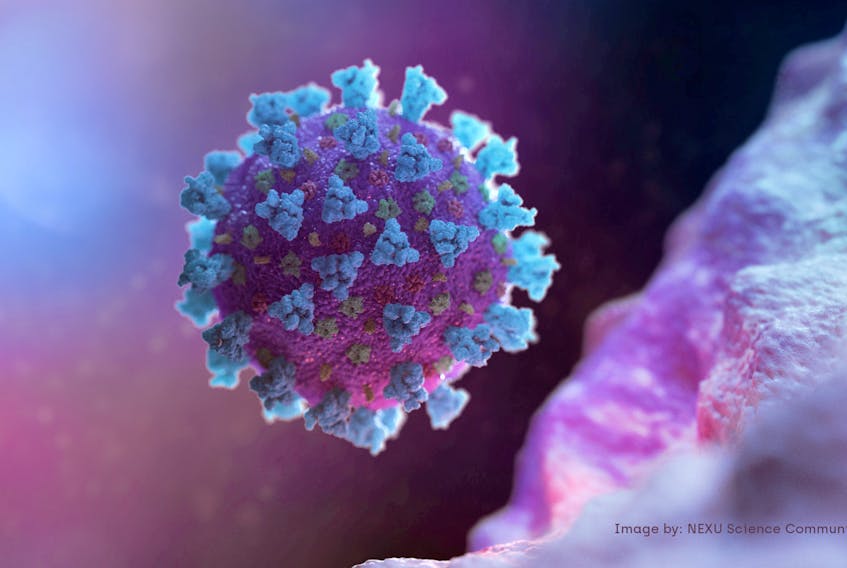Nova Scotia researchers are exploring whether the viral villain of 2020 can be turned into a good guy in the cancer battle.
By baiting the surface of cancer-infected cells with tiny bits of the coronavirus that causes COVID-19, the researchers hope to lure our immune system into attack mode.
The frontline soldiers against viral infections are called T-cells, shorthand for thymus cell lymphocytes.
When a virus infects our body and attaches itself to healthy cells, our immune system recognizes it and activates T-cells designed to kill that particular virus.
More importantly, at least for the current research, these T-cells will “remember” that virus even after it’s been driven from the body, said Dr. Shashi Gujar, a scientist with Dalhousie’s pathology department and the lead researcher of the international coronavirus/cancer study.
“They (T-cells) will subside, they will go to very almost undetected levels,” Gujar said in a recent interview. “They will be in your body to come into action just in case a reinfection happens.”
That’s where the coronavirus that caused COVID-19 comes into the picture. More than 32 million people have been infected by SARS-CoV-2, meaning those who survive the infection likely will have retained the T-cells specific to the virus.
“The qualifying characteristic of a cancer patient who can technically use this therapy in future is that you must have anti-COVID T-cells in your body,” Gujar said.
In addition, it’s likely that any vaccine developed to fight COVID-19 will contain the anti-COVID T-cells.
“So that means it provides you with a global population of people who actually have these COVID-specific T-cells,” he said.
Gujar emphasizes that the cancer patient won’t be injected with the live coronavirus in order to redirect our immune system toward the cancer-infected cells. The process only requires the surface of the cells to be treated with several amino acids from the virus - the aim is to get the T-cells to attack the cancer and leave the healthy part of the cell unharmed.
“Those are the type of fragments that get expressed on the surface of these infected cells,” he explained. “It’s almost like a beacon, right, you’re trying to get the attention from your T-cell, that I’m the one that has the virus, I’m the one that has that flag on the surface.”
Gujar is leading an ongoing international collaboration with partners in France, Denmark, Germany, U.S. and India in the study. The research is at the preclinical stage using lab animals.
The initial study has been published in the journal OncoImmunology.
Gujar said he’s “very optimistic” but added it won’t be until next year before the researchers will know whether they’re on the right track.
At this point it’s not even clear whether the usual T-cell response applies to the COVID-19 coronavirus, let alone whether it can be used against cancer cells.
“This is very early days of this innovation,” he said.
“One of the things that is absolutely necessary for this thing to work in clinics is, we need to understand the T-cell response against coronavirus very well. Because you want to make sure that these anti-COVID T-cells are actually the ones we think that they are and that they have this capacity.”









